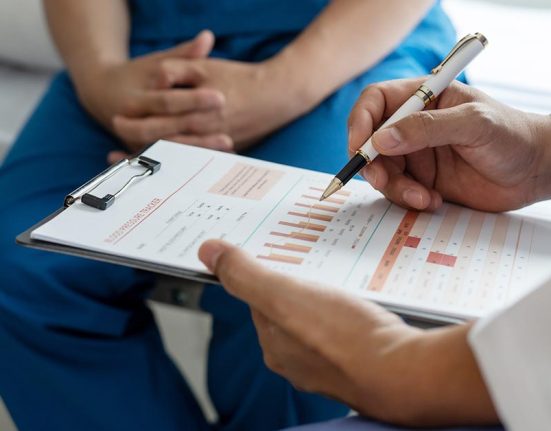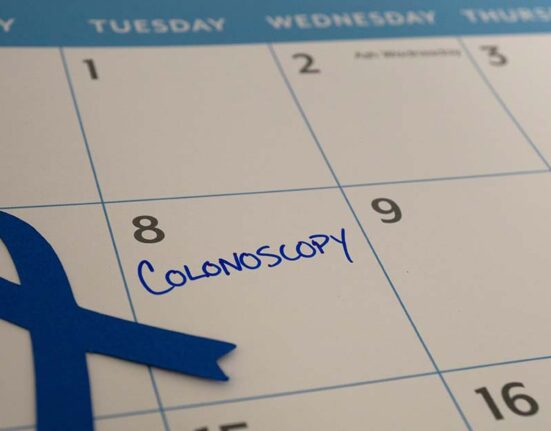Colorectal Cancer Is A Top Cancer In Singapore
One in 4 people in Singapore are likely to contract cancer in their lifetimes. Among the various types of cancer, colorectal cancer is among the most common types in Singapore. It is the top cancer for men, with an average of over 1,300 cases diagnosed each year between 2016 and 2020. It is the second most common cancer for women, with an average of over 1,000 new cases each year. The incidence rate for colorectal cancer in Singapore is one of the highest in the world, and especially Chinese males are at risk for developing this cancer. There are 2 common tests for detecting colorectal cancer – colonoscopy and the Faecal Immunochemical Test (FIT). Colonoscopy is seen as the best test for colorectal cancer screening currently available.
Faecal Immunochemical Test (FIT) – Good But Not The Gold Standard For Colorectal Screening
FIT is considered a “preliminary” screening for colorectal cancer. It can detect the presence of small amounts of blood in faeces and can be nearly 80% accurate in detecting colorectal cancer. If the results are positive, the patient should follow up with further investigations to confirm the cause of the results. It is a simple, non-invasive test to undertake, and should be done annually.
Colonoscopy Is The Best Test For Colorectal Cancer Screening
When it comes to reliability and detection sensitivity, colonoscopy currently stands as the best test for colorectal cancer screening. It is the gold standard, and should be done in addition to FIT.
During a colonoscopy, the doctor examines the inside your large intestine (inclusive of your colon, rectum, and anus) with an endoscope. This is a flexible tube with a lighted camera at the end that is inserted into the body via the anus. Pictures of the inside of the large intestine is sent to a screen in the operating theatre for the doctor to study. In addition, special tools may also be passed through the endoscope with which tissues can be removed for testing, or as treatment.
Why Should You Go For A Colonoscopy?
A colonoscopy is the best way of detecting colorectal cancer and can even spot abnormal growths before they turn cancerous. Most colorectal cancers develop from adenomatous polyps. It takes these adenomatous polyps about 5 to 10 years to become malignant. However, they are relatively asymptomatic and thus may easily be missed without a colonoscopy. During colonoscopy screening, if such polyps are detected, they can be removed, thus mitigating against the chances of cancer developing. In general, early detection also improves the success of successful treatment.
How Often Should You Go For A Colonoscopy?
Medical experts recommend colonoscopy once every 5 to 10 years for anyone aged 50 and above with an “average” risk profile for colorectal cancer. Those people with increased risk should start earlier and do it more frequently.
The following table shows MOH guidelines for frequency of colonoscopy based on risk profile.
| Risk Group | Onset (Age, Years) | Frequency |
| Average Risk | ||
| Asymptomatic, or family history limited to non-first degree relatives. | 50 years. | 10 years. |
| High Risk | ||
| Colorectal cancer in the first degree relative age 60 years or younger, or two or more first-degree relatives. | 10 years prior to the youngest case in the family or age 40 years, whichever is earlier. | Every 5 Years |
| Colorectal cancer in the first degree relative over the age of 60 years. | 50 years. | Every 10 Years |
| Personal history of colorectal polyps. | 1 to 3 years after polypectomy in the presence of high-risk features (>1cm, multiple, villous architecture); otherwise, 3 to 5 years after polypectomy for low-risk polyps | – |
| Personal history of colorectal malignancy. | One year after resection. | Every 1 to 3 years. |
| Personal history of ovarian or endometrial cancer. | After resection. | |
| Very High Risk | ||
| A family history of hereditary non-polyposis colorectal cancer. | 20 to 25 years. | Every 1 to 2 years. |
| Inflammatory bowel disease. (a) left-sided colon. (b) pan-colitis. | a. From 15th year of diagnosis onwards. b. From 8th year of diagnosis onwards. | a. Every 1 to 2 years. b. Every 1 to 2 years. |
[Updated 11 Jul 23]

Additional Information: Where To Do A Colonoscopy Screening In Singapore, Malaysia And Thailand
We have partnered with healthcare providers in Singapore and across the region on health screening packages for our readers. If you are looking for a health screening that includes a colonoscopy procedure, you can explore the available options here on our e-comm platform.
Protect against cancer, cardiovascular disease, and other chronic diseases with regular health screening. Compare and shop for health screenings from Singapore and regional healthcare providers at a single convenient platform - shop.health365.sg
This article is informative only and is not intended to be a substitute for professional medical advice, diagnosis, or treatment, and should never be relied upon for specific medical advice.
























































